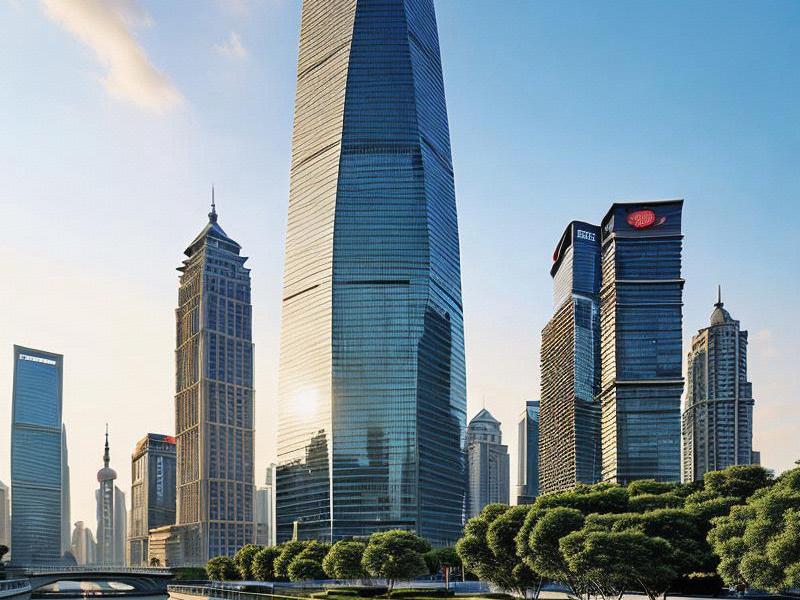Shanghai, a vibrant metropolis located on the banks of the Huangpu River in eastern China, is not only a symbol of modernity and progress but also a testament to the country's remarkable transformation over the past few decades. As the largest city in China and one of the most influential global financial hubs, Shanghai's story is one of rapid urbanization, economic growth, and cultural fusion.

Shanghai's rise to prominence began in the late 19th century when it was forcibly opened to foreign trade by imperialist powers. This marked the start of its transformation from a small fishing village into a bustling international port city. The Bund, with its colonial-era architecture, stands as a historical reminder of this era, while the Pudong New Area showcases the city's modern face.
Today, Shanghai is a global financial center, home to the world's busiest container port and a major hub for international trade and commerce. Its skyline is dominated by iconic skyscrapers such as the Shanghai Tower, which at 632 meters, is the tallest building in China and the second-tallest in the world. The city's economy is diverse, with strengths in finance, manufacturing, technology, and retail.
Culturally, Shanghai is a melting pot of traditions and modernity. It is known for its vibrant art scene, with galleries, theaters, and music venues scattered across the city. The city's cuisine, particularly its street food, reflects a blend of local flavors and international influences. From the spicy Sichuan dishes to the delicate Suzhou-style pastries, Shanghai's culinary offerings are as diverse as its population.
上海龙凤千花1314 Shanghai's rapid urbanization has brought about significant changes in its infrastructure and public services. The city has invested heavily in transportation networks, including its extensive metro system, which connects various parts of the city efficiently. Public amenities such as parks, museums, and libraries have also seen substantial improvements, enhancing the quality of life for its residents.
However, Shanghai's growth has not been without challenges. The city faces issues such as air pollution, traffic congestion, and housing shortages. To address these challenges, the government has implemented various measures, including promoting green energy, improving public transportation, and developing affordable housing projects.
Shanghai's global influence extends beyond its economic and cultural contributions. It plays a crucial role in China's Belt and Road Initiative, facilitating international trade and cooperation. The city's universities and research institutions are at the forefront of technological innovation, contributing to advancements in fields such as artificial intelligence, biotechnology, and renewable energy.
上海花千坊龙凤
In recent years, Shanghai has also made significant strides in environmental sustainability. The city has set ambitious targets to reduce carbon emissions and promote green development. Initiatives such as the construction of green buildings, the expansion of urban green spaces, and the promotion of electric vehicles are part of Shanghai's commitment to a sustainable future.
Shanghai's position as a global leader is further strengthened by its role in international diplomacy and cultural exchange. The city hosts numerous international conferences, exhibitions, and cultural festivals, attracting visitors and participants from around the world. These events not only showcase Shanghai's achievements but also foster global understanding and cooperation.
爱上海 The city's residents play a vital role in shaping Shanghai's identity. With a population of over 24 million, Shanghai is one of the most populous cities in the world. Its diverse population includes people from various ethnic backgrounds and regions, contributing to the city's rich cultural tapestry. The local dialect, Shanghainese, alongside Mandarin, is a reflection of the city's regional identity.
Shanghai's educational institutions are also noteworthy, offering world-class education and research opportunities. Renowned universities such as Fudan University and Tongji University attract students and scholars from across the globe, contributing to the city's intellectual and cultural vibrancy.
In conclusion, Shanghai stands as a beacon of China's modernization and a model for urban development. Its journey from a small fishing village to a global metropolis is a story of resilience, innovation, and determination. As Shanghai continues to grow and evolve, it remains a symbol of China's aspirations and a hub of global influence.